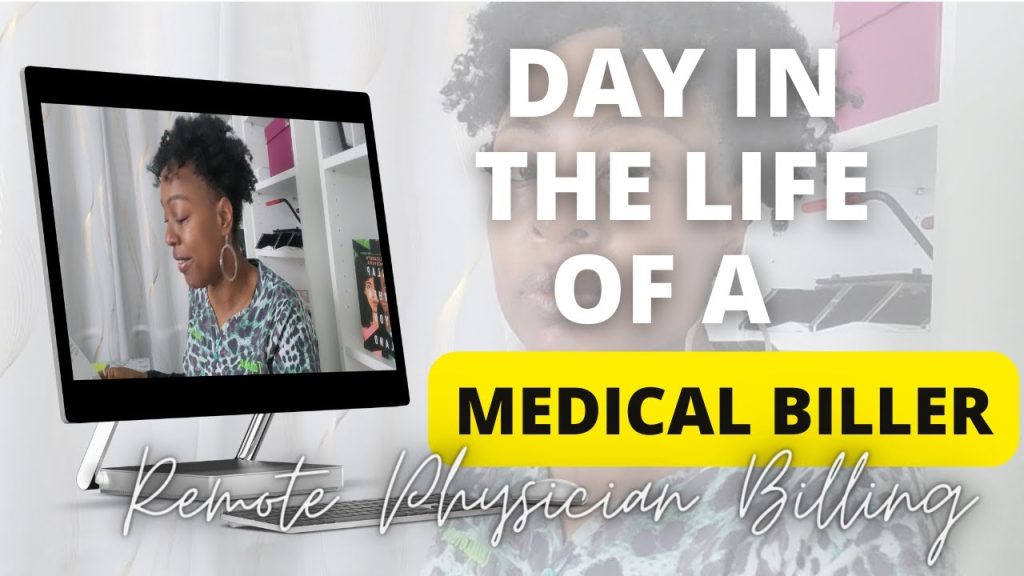In this article, you will learn about the daily responsibilities and tasks of a medical biller and coder. As a medical biller and coder, you play a crucial role in the healthcare industry by ensuring accurate billing and coding of medical procedures and services. You will gain insight into the various duties and skills required for this profession, as well as the importance of attention to detail and organizational skills in managing patients’ medical records and insurance claims.
On a typical day, a medical biller and coder may begin by reviewing patient charts and medical documentation to identify and assign appropriate codes to procedures and diagnoses. This requires a strong understanding of medical terminology and coding guidelines. Throughout the day, you will also process and submit insurance claims, follow up on any denied or rejected claims, and communicate with insurance companies and healthcare providers to resolve any billing issues. Additionally, you may be responsible for entering patient information into electronic health record systems, maintaining confidentiality and accuracy. The role of a medical biller and coder is vital in ensuring smooth and efficient operations in healthcare facilities, and this article will provide you with a comprehensive overview of what to expect in this profession. A medical biller and coder plays a critical role in the healthcare industry. They are responsible for reviewing and coding medical procedures, verifying health insurance coverage, and submitting claims to insurance companies. In this article, we will explore the day-to-day responsibilities, working environment, skills required, career advancement opportunities, job outlook, and salary of a medical biller and coder.
Responsibilities of a Medical Biller and Coder
As a medical biller and coder, your primary responsibility is to ensure accurate and efficient billing for medical services. This involves reviewing medical procedures and diagnoses and assigning appropriate codes using standardized coding systems such as ICD-10-CM, CPT, and HCPCS. Accurate coding is crucial for proper reimbursement from insurance companies and maintaining accurate healthcare records.
Another important responsibility is verifying health insurance coverage for patients. This involves checking patient eligibility, determining the extent of coverage, and understanding any limitations or exclusions. By verifying insurance coverage, you help ensure that patients receive the appropriate services and that healthcare providers receive proper payment for their services.
Once the coding and insurance verification processes are complete, medical billers and coders submit claims to insurance companies for payment. This involves preparing and reviewing claim forms, ensuring all necessary information is included, and submitting claims electronically or through the mail. Efficient and accurate claim submission is vital to ensure timely payment and minimize claim denials.
Working Environment
Medical billers and coders typically work in an office-based setting. They may work in hospitals, clinics, physician offices, or other healthcare facilities. Office-based work allows medical billers and coders to work in a controlled and organized environment, with access to necessary tools and resources.
Specialized medical coding software is an essential tool for medical billers and coders. This software helps streamline the coding process and ensures accurate and consistent coding practices. It also allows for easy access to coding guidelines and regulations, making it easier to adhere to industry standards.
In addition to working with software, medical billers and coders interact with various healthcare professionals and insurance company representatives. This requires effective communication and collaboration skills. Medical billers and coders need to communicate with healthcare providers to clarify documentation and ensure accurate coding. They also frequently interact with insurance company representatives to resolve billing issues and address claim denials.

Typical Daily Tasks
A typical day in the life of a medical biller and coder involves a variety of tasks aimed at ensuring accurate and timely billing. One of the first tasks is gathering patient information and medical records. This includes collecting patient demographic information, insurance details, and relevant medical documentation such as physician notes, lab results, and imaging reports.
Once the patient information and medical records are collected, medical billers and coders analyze the documentation to determine the appropriate codes for procedures and diagnoses. This requires a strong understanding of medical terminology, anatomy, and physiology. Attention to detail and strong analytical skills are crucial to ensure accurate coding.
After assigning the appropriate codes, medical billers and coders ensure compliance with coding guidelines and regulations. They need to stay up-to-date with coding changes and industry standards to ensure accurate and compliant coding practices. Compliance also involves maintaining patient confidentiality and privacy, ensuring that patient information is protected and handled according to HIPAA guidelines.
Collaboration and Communication
Collaboration and communication are important aspects of a medical biller and coder’s role. Medical billers and coders frequently need to coordinate with healthcare providers to clarify documentation and ensure accurate coding. Effective communication with healthcare professionals ensures accurate and comprehensive coding, which is essential for proper reimbursement.
Similarly, medical billers and coders communicate with insurance companies to resolve billing issues and address claim denials. This may involve providing additional documentation or clarification, appealing denied claims, or negotiating payment arrangements. Strong communication skills are essential to effectively navigate these interactions and ensure timely payment.

Problem-Solving and Troubleshooting
Problem-solving and troubleshooting are integral to the role of a medical biller and coder. They are responsible for identifying and resolving billing discrepancies, such as incorrect coding or missing information. This requires strong problem-solving skills and attention to detail.
Medical billers and coders also need to address coding errors and denials. This may involve reviewing denied claims, identifying the reasons for denial, and taking appropriate action to address the issues. Troubleshooting issues in claim processing, such as delayed or denied payments, is another important aspect of the job. This requires persistence, strong communication skills, and a thorough understanding of insurance companies’ processes.
Skills and Qualifications
To succeed as a medical biller and coder, you need a combination of skills and qualifications. Knowledge of medical terminology and coding systems is essential. This includes a thorough understanding of anatomy, physiology, and disease processes. Proficiency in using coding software and electronic health records is also important.
Attention to detail is crucial in accurately coding medical procedures and diagnoses. Strong analytical skills are necessary to review medical documentation and identify the appropriate codes. Problem-solving skills are essential for resolving billing discrepancies and addressing coding errors and denials.

Career Advancement Opportunities
A career as a medical biller and coder offers several opportunities for advancement. One common path is becoming a certified professional coder (CPC). Certification demonstrates proficiency in medical coding and can enhance job prospects and earning potential.
Another option for career advancement is specializing in a specific field of medicine. This allows medical billers and coders to develop expertise in a particular area, such as cardiology, orthopedics, or pediatrics. Specialization can open up new career opportunities and potentially lead to higher salaries.
Advancement to management or supervisory roles is another possibility for experienced medical billers and coders. These roles involve overseeing a team of medical billers and coders, ensuring compliance with coding guidelines, and managing billing operations. Leadership skills, strong coding knowledge, and experience are essential for these positions.
Job Outlook and Salary
The demand for medical billers and coders is expected to increase in the coming years. As the healthcare industry continues to grow, the need for accurate and efficient billing processes becomes increasingly important. Medical billers and coders are integral to this process and are in high demand across various healthcare settings.
While salary can vary based on factors such as experience, certifications, and geographic location, the average salary for medical billers and coders is competitive. According to the Bureau of Labor Statistics, the median annual wage for medical records and health information technicians, which includes medical billers and coders, was $44,090 in May 2020. With experience and career advancement, the potential for salary growth is promising.

Conclusion
In summary, a day in the life of a medical biller and coder involves a range of responsibilities and tasks in a dynamic healthcare environment. From reviewing and coding medical procedures to verifying insurance coverage, submitting claims, and resolving billing issues, their role is crucial in ensuring accurate and efficient billing processes. With the increasing demand for medical billers and coders, as well as opportunities for career advancement, this profession offers an exciting path for individuals interested in healthcare administration and finance.
